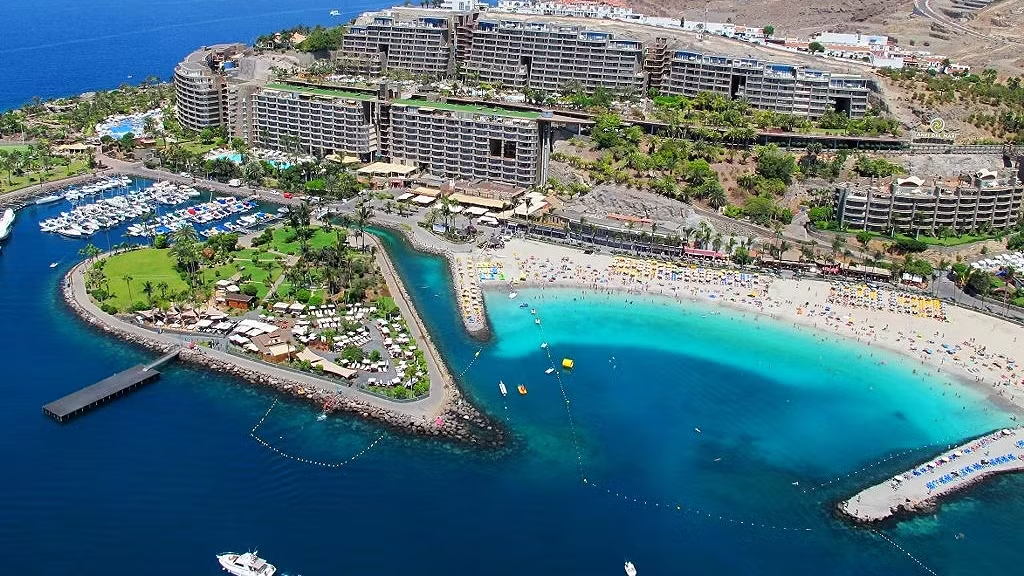When Spain enacted laws 25 years ago to protect consumers from high-pressure timeshare operations, the timeshare companies universally ignored those laws and brazenly continued operating, exactly as they always had.
Timeshare is an emotional sale. People only buy this product after being subjected to powerful sales techniques. They are shown luxury and told they deserve it while in a buoyant 'holiday mood.'
Surrounded by gently waving palm trees, and with soporific wavelets lapping a golden beach under an azure sky, people feel good. They are in the ideal mood to say 'yes,' to buying a timeshare membership, despite the product being of minimal financial benefit to them.

In fact so many people did say yes and regretted the decision later, that Spain created laws which (among other safeguards) forbade timeshare sales operations from taking any payment from prospects within 14 days of the presentation.
The response from pretty much every timeshare company in Spain was to carry on selling exactly as they always had done, and to ignore the new laws completely.
They continued to take as much payment as they could on the day of the sale. They continued selling products that were now banned (like points and floating weeks). And some resorts continued to sell memberships in perpetuity instead of the new 50 year maximum.
Companies knew that obeying the law was likely to mean the end of their business. Any emotional sale only works if the prospect can be induced to make a financial commitment on the spot, making it harder for them to change their mind later.

Nobody ever approaches a timeshare company of their own volition, looking to buy a membership. They need to be lured to attend a presentation (at a cost to the timeshare company of around £800 per presentation). Then an extremely sophisticated sales process convinces them to buy.
In order to cement the deal, the prospects are persuaded to pay as much money as possible on the day.
If instead the potential client was given 14 days (as is legally mandated) to think about the purchase they would be likely to revert to a logical frame of mind and understand that the product does not make financial sense.
If this was allowed to happen, the timeshare companies knew their sales would drop to zero overnight.
The answer to this is twofold.
Firstly many of the higher up execs in the sales operations would have understood that by the time the law caught up with the operation, they themselves were likely to be long gone. These were men and women earning sometimes £20,000 and £30,000 a month even 25 years ago. So every extra month put another big chunk in the bank. The Spanish legal system is notoriously pedestrian, and doubtless sales staff believed they personally would have ample time to escape before the forces of justice closed in.
Secondly the creaking bureaucracy of Spain and it's justice system would make it extremely challenging for victims to sue the timeshare companies over illegal sales. Even the most determined foreign, mis-sold timeshare owner would need to understand Spanish, have knowledge of the Spanish legal system, be prepared for endless delays and rescheduled hearings, and have the patience to overcome every delaying tactic and time-consuming legal obstruction the timeshare company lawyers could muster.
This 'defensive wall' of officialdom did indeed protect timeshare companies for another 17 years.
Finally, in 2016 the dam burst. Tove Grimsbo's paradigm shifting €40,000 court win over Anfi in Gran Canaria paved the way for hundreds of thousands of other mis-sold Spanish resort customers to sue for compensation.

In the eight years since the Grimsbo victory, the entire European timeshare landscape has changed beyond recognition. All the leading resorts have had to cease or drastically reduce sales operations. Former powerhouses like Anfi, Club La Costa and Diamond Resorts have been brought to their knees. Money making giants from previous decades have been swept away by a tidal wave of tens of millions of pounds worth of compensation awards against them.
Many resorts are in varying states of bankruptcy, administration or liquidation. Some have had to sell their inventory to larger hospitality conglomerates.
Certainly there are no operations doing business on the same scale as in the 'Wild West' 80s and 90s.
"It has reached the point where even members who were once happy with how their timeshare worked for them are losing confidence in their memberships," notes Greg Wilson, CEO of European Consumer Claims. "With so much debt to contend with and their main revenue streams cut, it's anybody's guess how long these resorts can continue to operate."

If you bought a timeshare membership in Europe, no longer have faith in it, and are wondering what your options are, get in touch with our team at the Timeshare Advice Centre. We can help.
